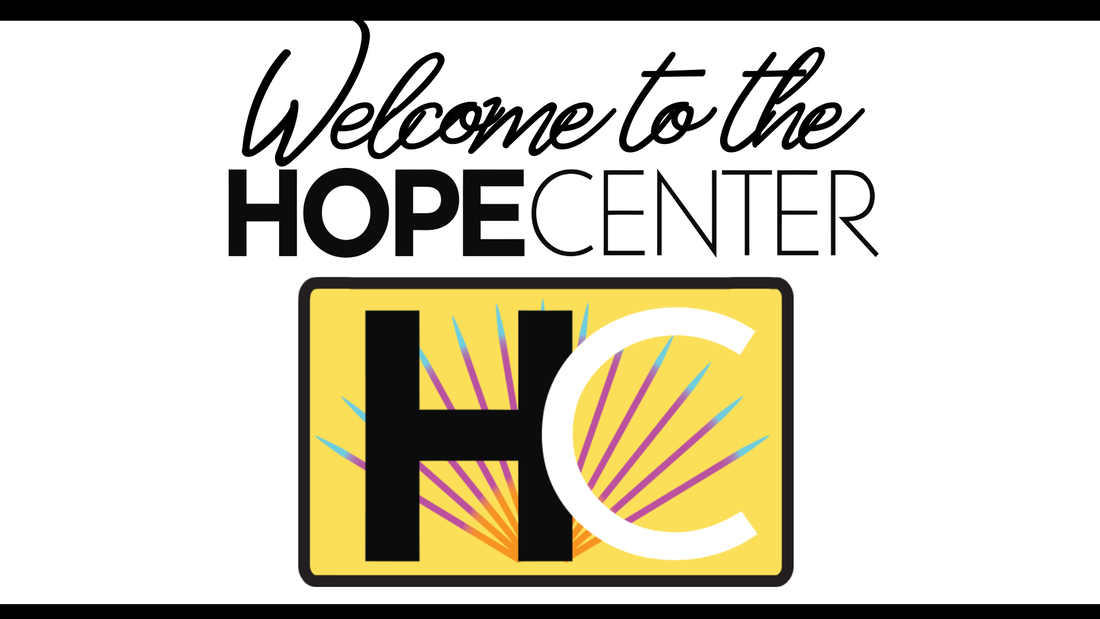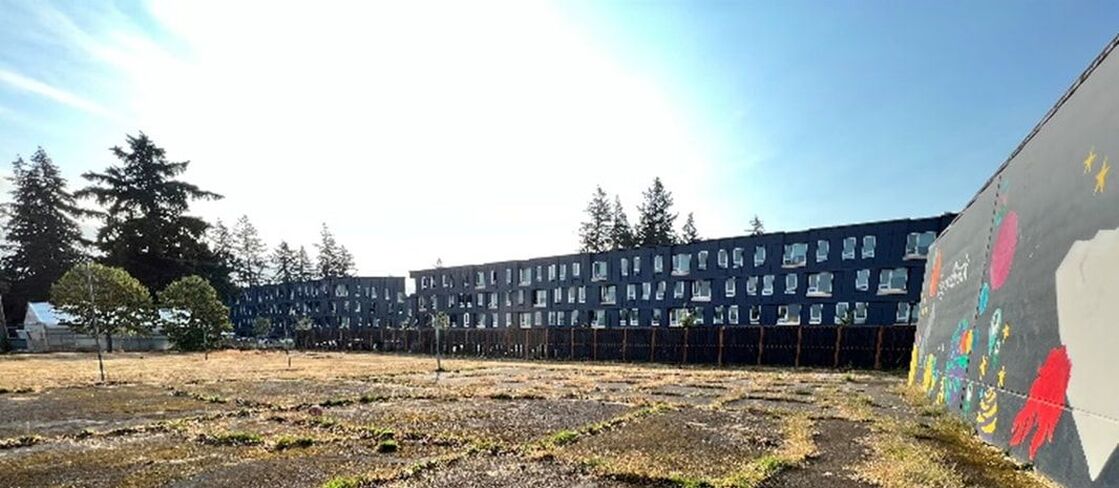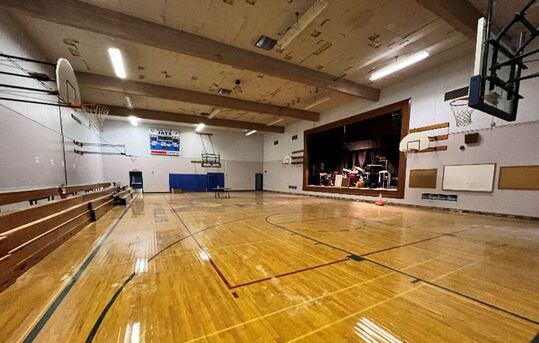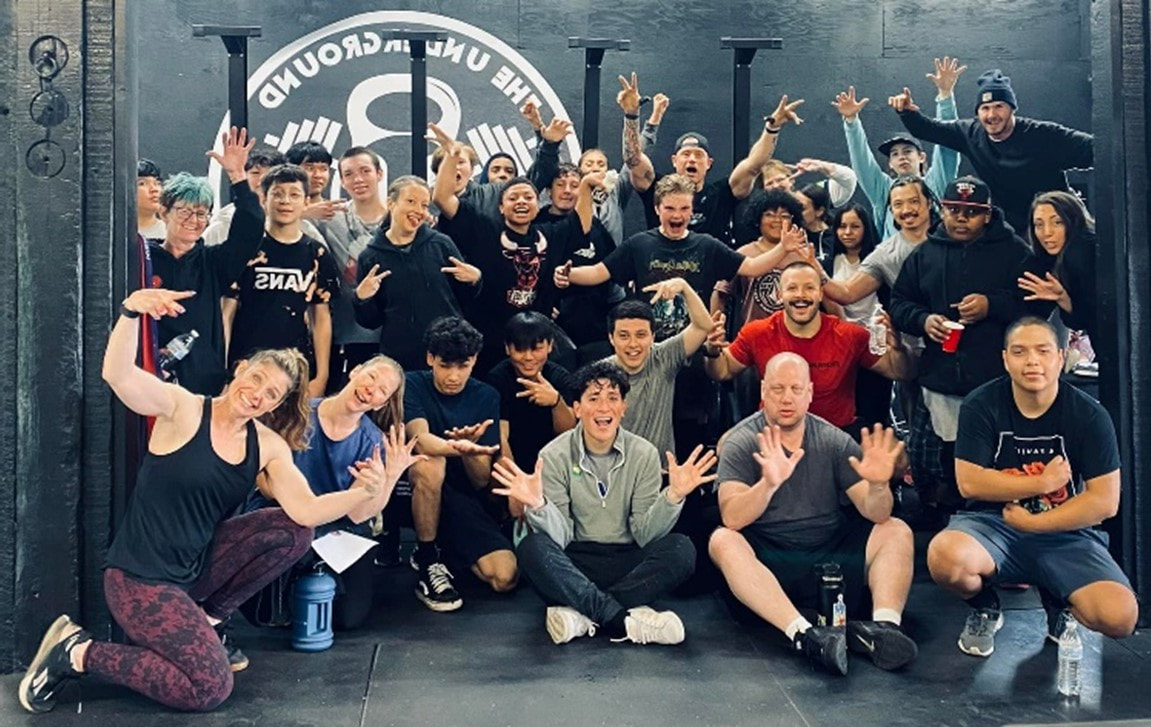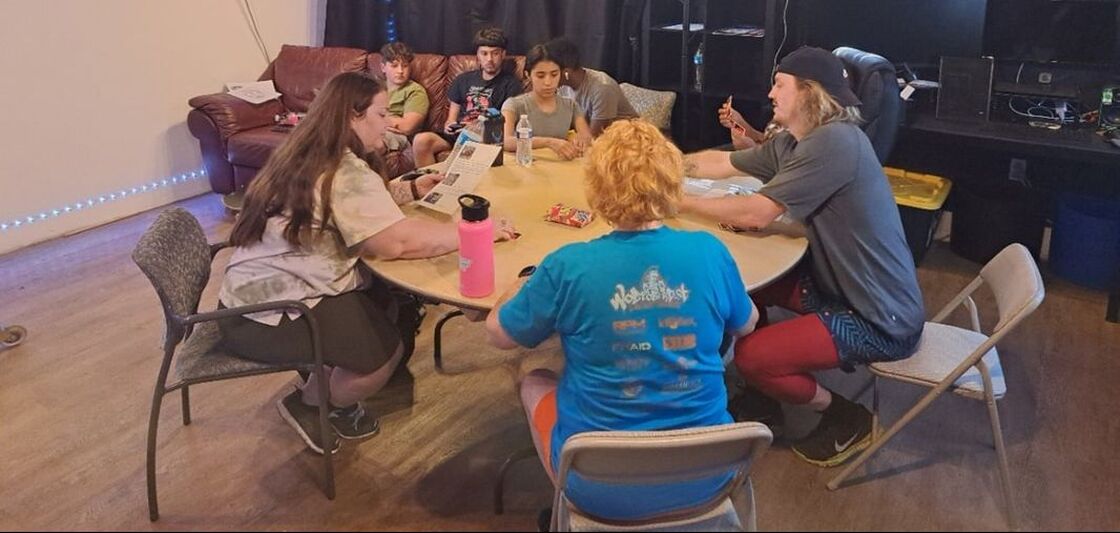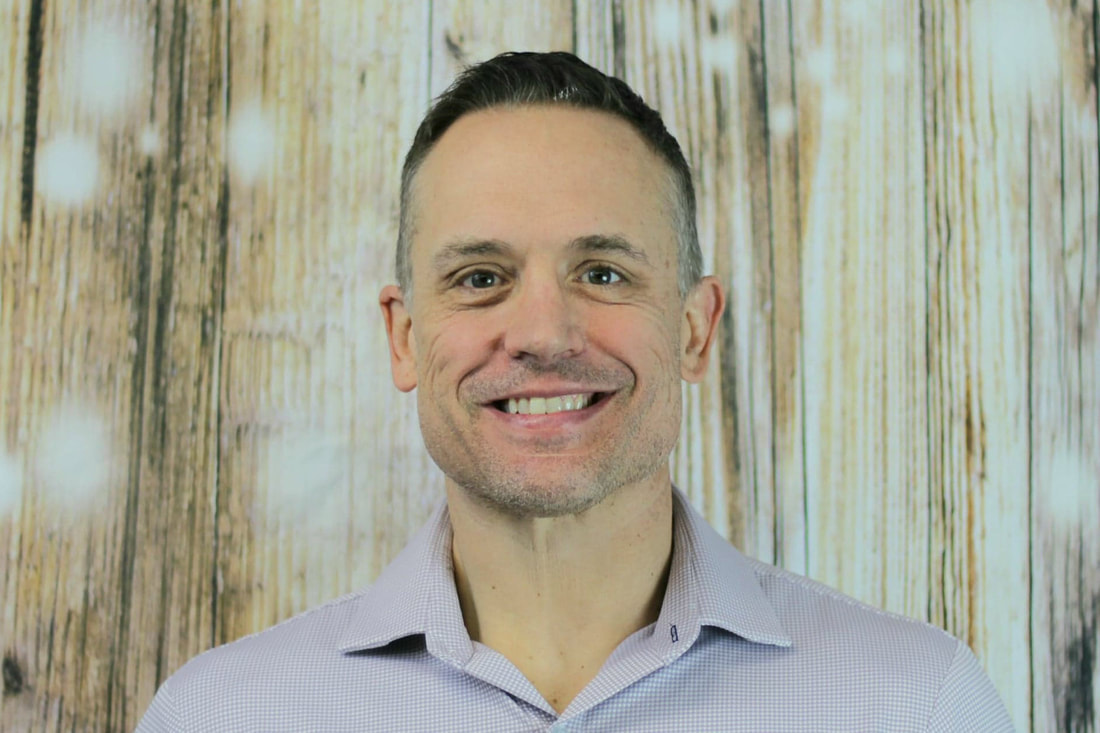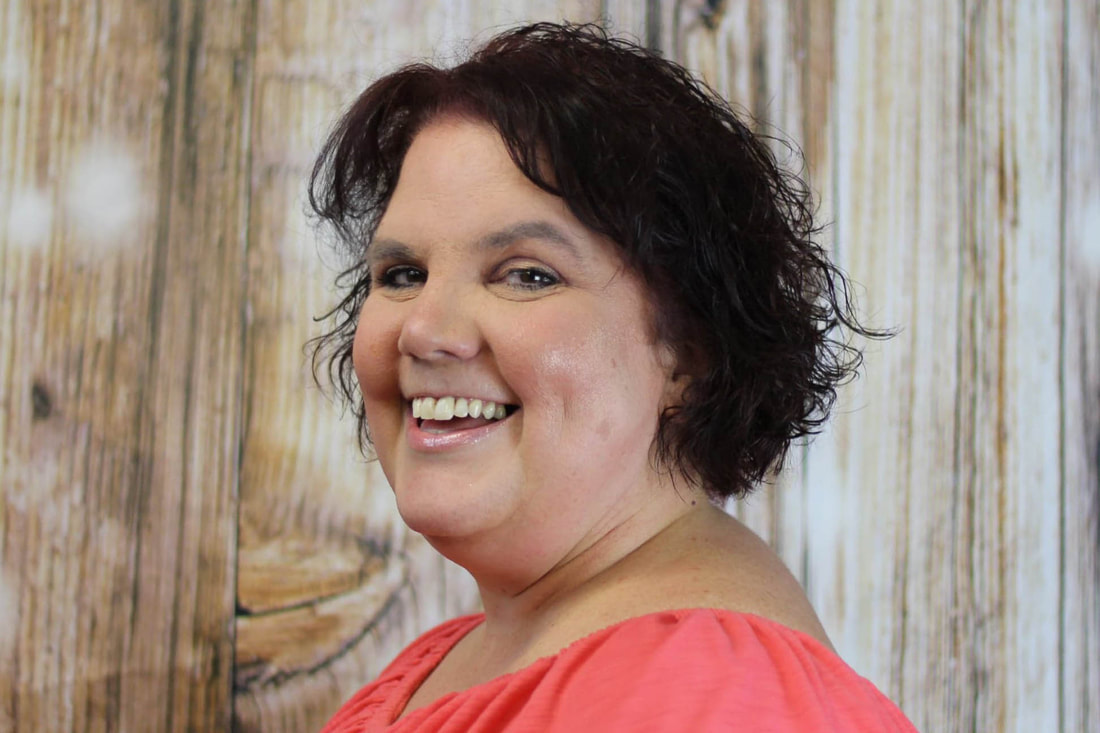The Rockwood Hope Center Vision
For years I've had a dream to open a center of hope in the heart of Rockwood. When Gwenna and I (and a small group of friends) were called to plant AS IS Church in 2012 we prayed that He would provide a permanent facility where we could feed hungry people, clothe those that need clothing, offer healing to the hurting, care for the orphaned and widowed, love the unwanted and objected, disciple the already connected, and bring about real change to this community!
Obviously, we didn't wait for the right building to start ministering! Before we ever launched church services or scheduled office hours, we were out on the streets serving and caring for the poor and impoverished. Before we had staff meetings, large events, programs, and ministries, we were out feeding the hungry, helping the hurting, and setting out to impact our community!
Now, after 10 years of ministry, nothing has changed with our vision and mission. Yes, we’ve changed locations and been through a lot of transitions, but God has brought us right back to the community we dearly love, Rockwood. More specifically the neighborhood that spans Yamhill 182 nd Ave to 197 th . We have a unique opportunity to partner with Rockwood Preparatory Academy and open a Rockwood HOPE Center (using the same model of collaborating with other organizations that we facilitated in SE PDX).
Because God has been so good to bless us with such an opportunity, to provide so faithfully, we would use this partnership to establish a center of hope for every boy or girl with no mom or dad, every lost and hurting soul, every person who's felt unwanted and forgotten, and every person searching for something more. We would do whatever it takes to show people that they matter because we know that everyone matters to God!
The Best Is Yet To Come!
Pastor Scott
Obviously, we didn't wait for the right building to start ministering! Before we ever launched church services or scheduled office hours, we were out on the streets serving and caring for the poor and impoverished. Before we had staff meetings, large events, programs, and ministries, we were out feeding the hungry, helping the hurting, and setting out to impact our community!
Now, after 10 years of ministry, nothing has changed with our vision and mission. Yes, we’ve changed locations and been through a lot of transitions, but God has brought us right back to the community we dearly love, Rockwood. More specifically the neighborhood that spans Yamhill 182 nd Ave to 197 th . We have a unique opportunity to partner with Rockwood Preparatory Academy and open a Rockwood HOPE Center (using the same model of collaborating with other organizations that we facilitated in SE PDX).
Because God has been so good to bless us with such an opportunity, to provide so faithfully, we would use this partnership to establish a center of hope for every boy or girl with no mom or dad, every lost and hurting soul, every person who's felt unwanted and forgotten, and every person searching for something more. We would do whatever it takes to show people that they matter because we know that everyone matters to God!
The Best Is Yet To Come!
Pastor Scott
The Plan
Open a community-based center (HOPE Center) as a hub for resources and services to meet the needs of those in our community.
AS IS CHURCH PROGRAMS AND SERVICES (MINISTRIES)
• Faith-based discipleship, groups, mentoring, counseling, education
• Outreach and Relief: Adopt-The-Rock and Love Shack Ministries
• The Underground Youth Mentoring and Fitness – City of Gresham Partnership
• AXIS YOUTH AND KIDSWORLD: Youth services (afterschool programs, tutoring)
• CIT – Crisis Intervention Team
• Outreach and Relief: Adopt-The-Rock and Love Shack Ministries
• The Underground Youth Mentoring and Fitness – City of Gresham Partnership
• AXIS YOUTH AND KIDSWORLD: Youth services (afterschool programs, tutoring)
• CIT – Crisis Intervention Team
INVITE OTHER CBO’S TO PARTNER ONSITE
AS IS CHURCH
Vision – Sharing God’s love with a broken and hurting world. Loving Him, Loving Others, Changing Lives.
At AS IS Church, we believe Everyone has a name. Everyone has a story. Everyone matters to God. Since Everyone matters to God, they matter to us.
Establish a new campaign and commitment to the neighborhood of Yamhill 182-197th. Basically, AS IS Church will *Adopt-The- Rock. One of the primary goals and mission is to serve this neighborhood, work with the youth and residents to provide hope, healing, and a place to belong. Our neighbors don’t “need” more services - they need love.
We start by moving to the space located at 740 SE 182 nd Ave with our current ministries, which include, The Underground, The Love Shack, AXIS Youth, and our current church services which include a discipleship plan which will help the church grow. We will love our neighbors and develop an intentional
strategy/team to be invested and involved in the apartment complexes (Rockwood Village) and bring in community partners
(CBO's) to work alongside us to provide care and prevention services.
We will also partner with RPA to provide after school fitness, hangouts, tutoring, etc. We will offer the gym space as a place for teachers and staff to improve their health and fitness. We will establish a community response team that will work directly with our neighbors/residents to provide wrap-around care during a crisis. Ultimately, wed like to see a long-term plan of tearing down the old gym and establishing a new community center on the site.
From an AS IS perspective, we do not care who owns the property; we are committed to being involved in the community at the highest level. Where residents, both adults and children, know that the Adopt-The-Rock team is safe, loving, and looking out for their best interest!
At AS IS Church, we believe Everyone has a name. Everyone has a story. Everyone matters to God. Since Everyone matters to God, they matter to us.
Establish a new campaign and commitment to the neighborhood of Yamhill 182-197th. Basically, AS IS Church will *Adopt-The- Rock. One of the primary goals and mission is to serve this neighborhood, work with the youth and residents to provide hope, healing, and a place to belong. Our neighbors don’t “need” more services - they need love.
We start by moving to the space located at 740 SE 182 nd Ave with our current ministries, which include, The Underground, The Love Shack, AXIS Youth, and our current church services which include a discipleship plan which will help the church grow. We will love our neighbors and develop an intentional
strategy/team to be invested and involved in the apartment complexes (Rockwood Village) and bring in community partners
(CBO's) to work alongside us to provide care and prevention services.
We will also partner with RPA to provide after school fitness, hangouts, tutoring, etc. We will offer the gym space as a place for teachers and staff to improve their health and fitness. We will establish a community response team that will work directly with our neighbors/residents to provide wrap-around care during a crisis. Ultimately, wed like to see a long-term plan of tearing down the old gym and establishing a new community center on the site.
From an AS IS perspective, we do not care who owns the property; we are committed to being involved in the community at the highest level. Where residents, both adults and children, know that the Adopt-The-Rock team is safe, loving, and looking out for their best interest!
The Underground:
Currently The Underground is serving 34 youth ages 6 th grade through 12 th grade three days a week. The youth we serve are diversified in age, gender, and race. We currently serve ages 11-17 with the average age being 14. 27 of our athletes are male and 7 are female.
The Underground is more than a workout, we spend time getting to know them, we plan activities outside of the workout, they are all invited to attend our Wednesday night dinner and youth hangout, we encourage them to give back to their community. Many of the kids have helped with city clean ups, helping us load and unload the truck for the city block party. The kids also put together a fundraiser where they raised money and were able to go bowling with that money as a group.
We want to expand our Underground to include an after-school program for children from kindergarten through 5 th grade. Continue working with 6 th grade through 12 th grade and expand to include adults as well in the block we are adopting.
The Underground is more than a workout, we spend time getting to know them, we plan activities outside of the workout, they are all invited to attend our Wednesday night dinner and youth hangout, we encourage them to give back to their community. Many of the kids have helped with city clean ups, helping us load and unload the truck for the city block party. The kids also put together a fundraiser where they raised money and were able to go bowling with that money as a group.
We want to expand our Underground to include an after-school program for children from kindergarten through 5 th grade. Continue working with 6 th grade through 12 th grade and expand to include adults as well in the block we are adopting.
The Love Shack
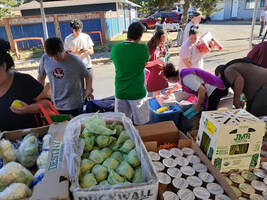
Currently the Love Shack ministry serves 23 food boxes twice a month to neighbors in the area we are going to adopt. We would like to expand that to include every neighbor that needs extra food. We would also like to serve a weekly meal to the community to help further stretch their food budget. We will also engage our partners to offer more resources that are needed as we learn what each individual family needs in the area.
*Adopt-The-Rock (YAMHILL 182nd – 197th )
Through Adopt-The-Rock, physical needs of individuals and families will be met on a consistent basis leading to valuable relationships and a brighter future for our community. Simply put: Find a need and fill it.
Through a weekly outreach we will partner with many volunteers and other organizations to love our underserved neighborhoods with the goal of finding a need and filling it. Our outreach programs will include distributing food, hygiene items and other essentials, playing with kids, picking up trash, and visiting family’s door-to-door.
Through a weekly outreach we will partner with many volunteers and other organizations to love our underserved neighborhoods with the goal of finding a need and filling it. Our outreach programs will include distributing food, hygiene items and other essentials, playing with kids, picking up trash, and visiting family’s door-to-door.
Crisis Intervention Team: (We want to add this.)
Adult CIT has three key components: A community collaboration between mental health providers, law enforcement personnel, family and consumer advocates, and other stakeholders. Representatives from these stakeholder groups form a steering committee or advisory group.
Adult CIT has three key components: A community collaboration between mental health providers, law enforcement personnel, family and consumer advocates, and other stakeholders. Representatives from these stakeholder groups form a steering committee or advisory group.
Adult CIT has three key components: A community collaboration between mental health providers, law enforcement personnel, family and consumer advocates, and other stakeholders. Representatives from these stakeholder groups form a steering committee or advisory group.
- A 40‐hour training program for personnel that includes basic information about mental illness, information about the local mental health system and local policies, interaction with consumers and family members to learn about their experiences, verbal de‐escalation techniques and strategies, and role‐playing.
- Consumer and family involvement in steering and advisory committees, coordinating training sessions, and leading training sessions.
Drug Free Rockwood Youth Coalition
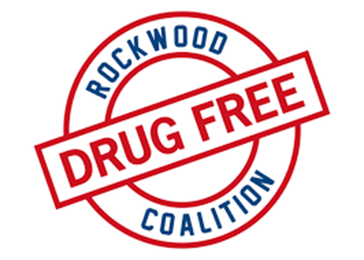
• The Drug Free Rockwood Youth Coalition will coordinate development of a Communities Talk rally, in which several youth will be giving speeches on important Youth Recovery Topics.
• They will also market PSAs they will develop which tackle underage drinking, vaping, marijuana, opioid misuse, OTC drug misuse, and tobacco—and pointed viewers to resources within the website for the Rockwood County Opioid Misuse Prevention Coalition.
• Hold a health fair in the AS IS facility and parking lot with health and wellness vendors and organizations including the Multnomah County Health Department, Gresham D.A.R.E., various culturally specific counseling services, NW Instituto Latino Recovery Support Center, Latino Network, and County Public Schools.
• They will also market PSAs they will develop which tackle underage drinking, vaping, marijuana, opioid misuse, OTC drug misuse, and tobacco—and pointed viewers to resources within the website for the Rockwood County Opioid Misuse Prevention Coalition.
• Hold a health fair in the AS IS facility and parking lot with health and wellness vendors and organizations including the Multnomah County Health Department, Gresham D.A.R.E., various culturally specific counseling services, NW Instituto Latino Recovery Support Center, Latino Network, and County Public Schools.
• Adapting Evidence-Based Practices for Under-Resourced Populations
• This guide focuses on research supporting adaptations of evidence-based practices (EBPs) for under-resourced populations. Adaptations involve tailoring care, programs, and services to the cultural, social, gender, and demographic contexts of the people served to yield positive outcomes.
• Substance Abuse and Mental Health Services Administration (SAMHSA)
• This guide focuses on research supporting adaptations of evidence-based practices (EBPs) for under-resourced populations. Adaptations involve tailoring care, programs, and services to the cultural, social, gender, and demographic contexts of the people served to yield positive outcomes.
• Substance Abuse and Mental Health Services Administration (SAMHSA)
We also want to add AS IS Youth Social Media Guide
Using social media for Communities Talk is an important way to engage and mobilize audiences in prevention. It helps us communicate and interact with one another online and builds and maintains relationships among both established partners and those new to underage drinking and substance use prevention work.
Social media also can add value to our Communities Talk activity and ongoing underage drinking prevention efforts. We will use social media to:
• Gather information about issues of concern to the community via polls and questions.
• Share highlights from your Communities Talk activity with photos and videos.
• Solicit feedback after community event.
• Keep the conversation going about prevention topics following your activity; and
• Cross-promote underage drinking and substance use prevention messages from partners.
Community violence is a complex public health problem with many risk factors, including individual beliefs and behaviors such as early aggression and use of alcohol or other drugs; family characteristics such as spousal abuse and lack of parental supervision; peer and school influences such as associating with delinquent friends; and environmental factors such as access to firearms. This complexity presents many challenges for those of us who are working to prevent violence.
AS IS Church efforts are committed to “Best” practices, which are the elements and activities of intervention design, planning, and implementation that are recommended based on the best knowledge currently available. We believe that there exist four distinct strategies for combating the
problem of violence and have developed plans for each strategy best practices.
1. Parent- and Family-Based Strategy: Parent- and family-based interventions are designed to improve family relations. There is growing evidence that these interventions, especially those that start early and recognize all the factors that influence a family, can have substantial, long-term effects in reducing violent behavior by children.
2. Home-Visiting Strategy: Home-visiting interventions bring community resources to at risk families in their homes. During home visits, intervention staff provides information, healthcare, psychological support, and other services that participants need to function more effectively as parents.
3. Social-cognitive interventions strive to equip children with the skills they need to deal effectively with difficult social situations, such as being teased or being the last one picked to join a team. They build on Bandura’s social-cognitive theory, which believes that children learn social skills by observing and interacting with parents, adult relatives and friends, teachers, peers, and others in the environment, including media role models
4. Mentoring—the pairing of a person with a volunteer who acts as a supportive, nonjudgmental role model—has been touted by many as an excellent means of providing a child or adolescent with a positive adult influence when such an influence does not otherwise exist.
Social media also can add value to our Communities Talk activity and ongoing underage drinking prevention efforts. We will use social media to:
• Gather information about issues of concern to the community via polls and questions.
• Share highlights from your Communities Talk activity with photos and videos.
• Solicit feedback after community event.
• Keep the conversation going about prevention topics following your activity; and
• Cross-promote underage drinking and substance use prevention messages from partners.
Community violence is a complex public health problem with many risk factors, including individual beliefs and behaviors such as early aggression and use of alcohol or other drugs; family characteristics such as spousal abuse and lack of parental supervision; peer and school influences such as associating with delinquent friends; and environmental factors such as access to firearms. This complexity presents many challenges for those of us who are working to prevent violence.
AS IS Church efforts are committed to “Best” practices, which are the elements and activities of intervention design, planning, and implementation that are recommended based on the best knowledge currently available. We believe that there exist four distinct strategies for combating the
problem of violence and have developed plans for each strategy best practices.
1. Parent- and Family-Based Strategy: Parent- and family-based interventions are designed to improve family relations. There is growing evidence that these interventions, especially those that start early and recognize all the factors that influence a family, can have substantial, long-term effects in reducing violent behavior by children.
2. Home-Visiting Strategy: Home-visiting interventions bring community resources to at risk families in their homes. During home visits, intervention staff provides information, healthcare, psychological support, and other services that participants need to function more effectively as parents.
3. Social-cognitive interventions strive to equip children with the skills they need to deal effectively with difficult social situations, such as being teased or being the last one picked to join a team. They build on Bandura’s social-cognitive theory, which believes that children learn social skills by observing and interacting with parents, adult relatives and friends, teachers, peers, and others in the environment, including media role models
4. Mentoring—the pairing of a person with a volunteer who acts as a supportive, nonjudgmental role model—has been touted by many as an excellent means of providing a child or adolescent with a positive adult influence when such an influence does not otherwise exist.

